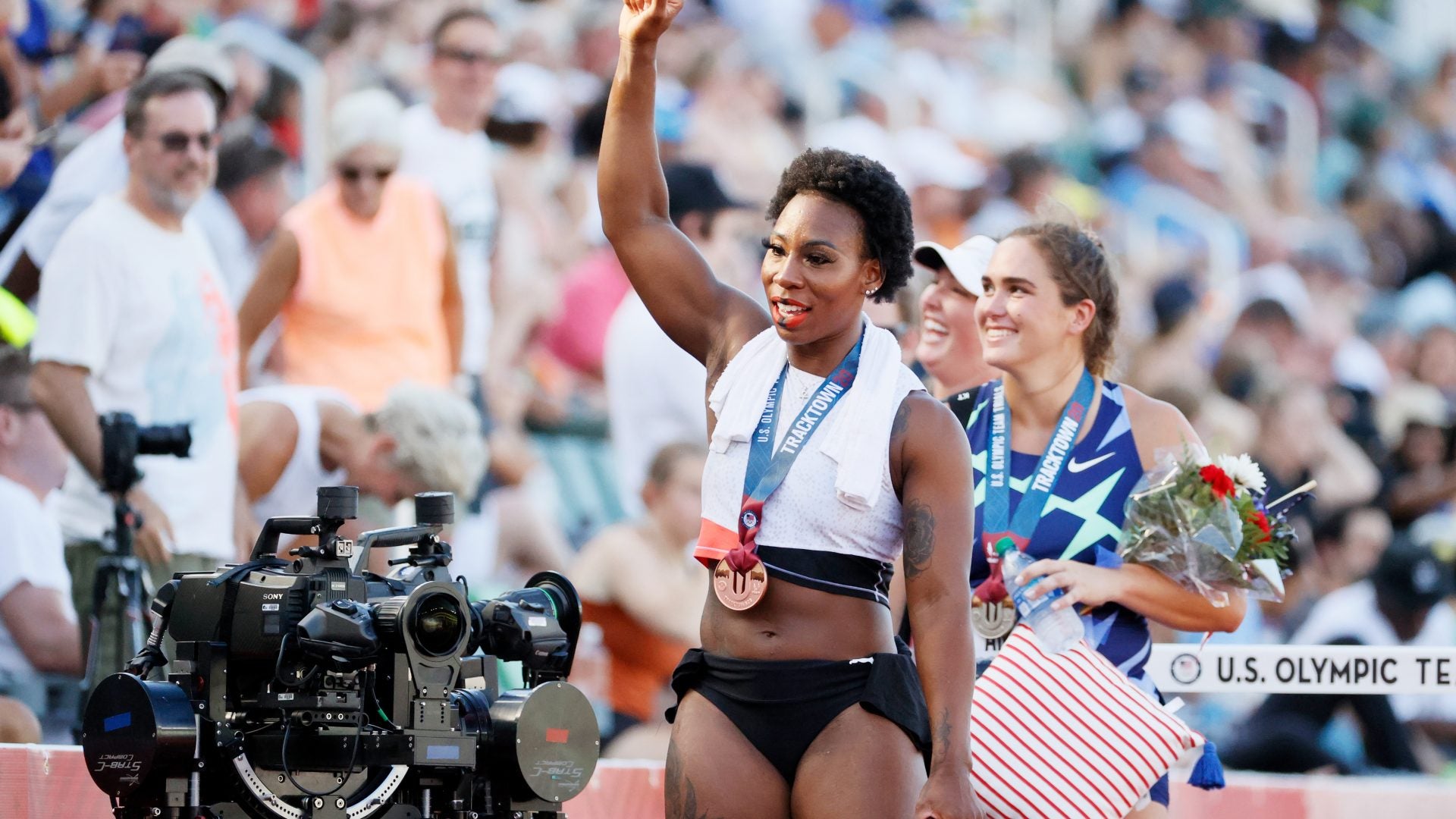
This past weekend during an Olympic trials medal ceremony, track and field athlete Gwen Berry joined the ranks of Muhammed Ali, Tommie Smith, John Carlos, and Colin Kaepernick (to name a few)—athletes who have decided to use their platform to stand up for their beliefs.
Berry, who finished third place in the hammer throw, “turned away from the flag as the national anthem played…and near the end of the ‘Star Spangled Banner’ held up a T-shirt reading ‘Activist Athlete’ and draped it over her head.”
White House press secretary Jen Psaki responded to a question around President Biden’s thoughts on the appropriateness of Berry’s actions as an athlete representing this country at the Olympics: “I know [Biden] is incredibly proud incredibly proud to be an American and has great respect for the anthem and all that it represents…He would also say that part of that pride in our country means recognizing there are moments where we, as a country, haven’t lived up to our highest ideals, and means respecting the right of people granted in the Constitution to peacefully protest.”
Not all have been supportive of Berry, however, including U.S. Senator Ted Cruz (TX) and former U.S. Department of Education Press Secretary Angela Morabito. U.S. Rep. Dan Crenshaw (TX-02) has been particularly vocal on the matter, stating “We don’t need any more activist athletes. She should be removed from the team. The entire point of the team is to represent the United States of America…So it’s one thing when these NBA players do it, okay fine, we’ll just stop watching. But now the Olympic team? And it’s multiple cases of this. They should be removed,” Newsweek reports.
Despite what some conservative representatives might have you believe, the history of activism in sports runs deep. Like 532 A.D. deep. According to The Undefeated, the earliest known protest was at the chariot races in Constantinople wherein two rival driver teams “asked the emperor Justinian to pardon two of their followers who had been condemned to die.” Since then, “[t]here have been all sorts of protests about race, gender, money, and nationality in American and Olympic sports history, but they all have this in common: the constant struggle for justice.”
Per an open letter by U.S. Olympic and Paralympic Committee CEO Sarah Hirshland to the athletes, this year “respectful demonstrations on the topic of racial and social justice” are allowed at the Olympic trials. Conversely, at the Olympic Games in Tokyo, under Rule 50, protests and demonstrations are banned.
NPR reports that this is not the first time Berry has utilized her platform to protest. “On the podium for her gold medal at the 2019 Pan-American Games in Lima, Peru, [Berry] threw her fist in the air during the national anthem. At the time, the move cost her sponsorships and got her suspended for 12 months.”
Watch: ESSENCE Festival of Culture presents “Women in the Business of Sports“
In the wake of the controversy, Berry defended herself, saying “We were not even supposed to be on the podium [during the anthem]…referring to the playing of the song as a ‘set up.’” NPR investigated, and Susan Hazzard, USA Track and Field spokesperson, said the music had a delayed start of 5:25 p.m.
Berry said, “[t]hey said they were going to play it before we walked out, then they played it when we were out there.” Forbes reported on Berry’s response to why she chooses to protest the anthem. “History. If you know your history, you know the full song of the national anthem. The third paragraph [of the Star Spangled Banner] speaks to slaves in America—our blood being slain all over the floor. It’s disrespectful and it does not speak for Black Americans.”